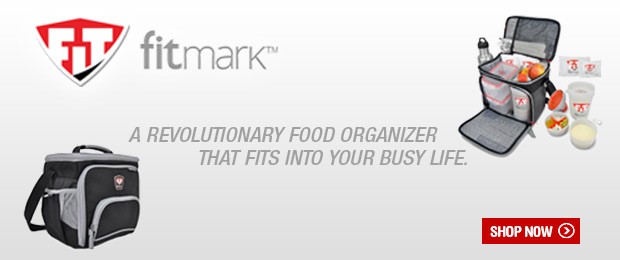
I graduated with a Bachelor’s Degree in Business Administration from the University of Washington in 1997, the same year I married Christina. My previous intention included continuing my education via a graduate degree in English and eventually a PhD so I could teach at the college level. Marriage has a way of shifting your focus — I needed a job. I worked from my early teen years doing every job imaginable at Garden Fresh Foods, a fresh-cut, wholesale produce business founded by my dad and his business partner. I worked alongside both men until my dad’s retirement in January of 2000. With a 14-year buy-out contract in the rearview, I’m now 50/50 owner with my dad’s former partner.
RELATED: 3 Business Lessons from My First 5 Years of Gym-Ownership
Currently, with nearly 17 years of business ownership under my belt, I’m willing to admit I don’t possess all the answers. I’ve learned some lessons the hard way. However, Garden Fresh Foods continues to thrive in a 41,000 square-foot production facility with nearly 90 employees. Next year it will celebrate its 30th business anniversary. The following article details five valuable insights learned from both good and bad business decisions over the years.
Always take the high road.
It’s never wise to win the battle and lose the war. Business longevity requires both vision and resolve to remain ethical in the face of others who may sometimes lack ethics. Dave Ramsey, author, business man, radio host and motivational speaker, once said, “Be worthy of trust because the number one indicator of success is integrity.” I couldn’t agree more. Making business decisions that push ethical limits or lack integrity are shortsighted. Sometimes compromising integrity may be the easier route, but it’s never the best route.
I’ve often said you can’t do good business with bad people. If you can’t trust a person’s handshake, then why would you trust their signature? That’s because individuals who lack integrity and ethics eventually harm business relationships and ultimately damage the businesses they own. An important prerequisite of acting with integrity includes a healthy dose of humility. Humility is one of the best defenses you can employ against making bad business decisions. As a business owner, you’re going to make mistakes, but it’s how you handle them that matters in the long term. Never compromise on acting with integrity, and always own your mistakes with humility.
Cash is king.
More companies—particularly fast growing ones—go broke due to a lack of cash flow than a lack of profitability. Yes, you read that correctly. Profitability is a valuable indicator of a company’s performance, but don’t lose sight of your cash position. If you’re tapping a line of credit to make payroll, then your ratio of current assets to liabilities is not healthy.
A strong cash position allows a company to defend market share if competition encroaches, quickly move to invest when new opportunities present themselves, and endure poor weather seasons and unexpected economic downturns, among other things. I’ve also heard people boast of high-profit margins, but don’t lose sight of the fact that you don’t take percentages to the bank – you take dollars. Cash is king, so treat it as such.
Trust your gut instinct.
Sometimes it’s best to follow your gut instinct on employees. Is someone always involved in or at the center of conflict? If the common denominator in departmental drama repeatedly boils down to a given employee, follow your gut and remove them from your company expeditiously. Not all cancers are fast-growing. Some progress so slowly that it’s easy to lose sight of the fact that they’re terminal. Excusing behavior and hoping for change often allows the disease to spread. Taking a scalpel to your company is what makes being an owner most difficult, particularly when you’re addressing something in its infancy because it’s often not fully understood by others in the company. They may not realize their perception of a cold decision regarding one employee is to ensure the security and health of the rest. If you’re not willing to follow your gut and make the tough decisions, then you might not be suited for ownership.
Stick to your knitting.
You can’t be all things to all people unless you’re okay with mediocrity. In business, the mediocre often don’t survive. Are you going to be the company that innovates, focuses on customer intimacy, or strives for operational excellence via efficiency? Chances are that you can’t be an industry leader in all three areas, so best to decide early on your company’s DNA. Finding your focus will help you navigate through a sea of competition and opportunity.
RECENT: 2016 Olympia 212 Showdown Report
There is nothing wrong with saying no to opportunities that don’t fit your company’s mission statement. It’s better to be exceptionally good at a limited number of things than barely average in a multitude. Ruminate on quality over quantity because activity doesn’t necessarily equate to accomplishment. Don’t use a shotgun when the job requires a sniper rifle. Find your focus and stick to it.
Under-promise and over-deliver.
Satisfied customers are repeat customers even if they don’t sing your praises to their friends. Dissatisfied customers, on the other hand, won’t return and are likely to ridicule your company to their friends. More often than not, satisfaction is simply a matter of perception. Whether the customer’s perception is right or wrong is somewhat irrelevant. A customer’s perception is their reality of how well you care about their needs and wants.
Managing expectations goes a long way in regards to leaving customers with a positive perception of your company. Clear communication and upfront honesty in terms of your capabilities helps set the stage for customer expectations. I see companies get overzealous in their desire to tell the customer what they want to hear rather than the truth. Over-promising often comes back to bite them when they fail to meet the customer’s expectations. Under-promising and over-delivering will ensure you exceed expectations and cultivate satisfied customers.
Conclusion
Hopefully the previous five points provided food for thought, whether you own a business currently or hope to someday. Certainly other important components factor into running a successful business, but these are a few lessons worth contemplating. I believe if you act with integrity, ensure liquidity, move decisively, maintain focus, and exceed customer expectations, you’ll be well on your way to building a company with vitality and longevity.












4 Comments